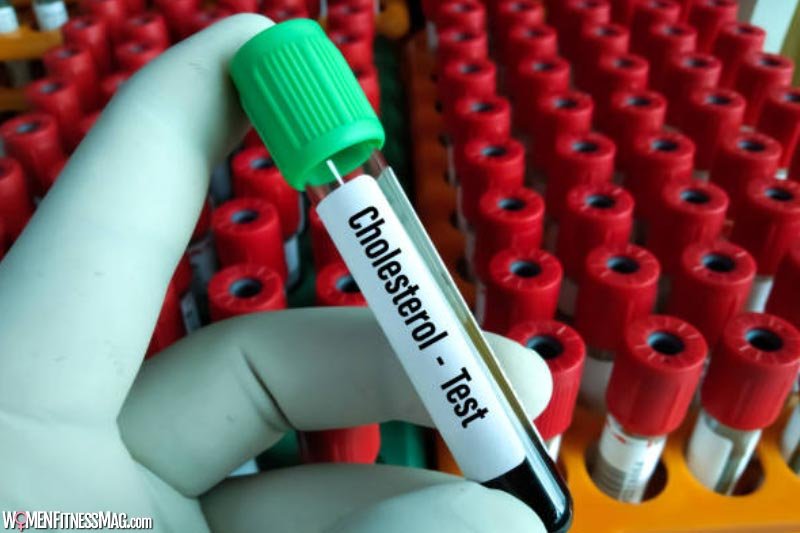holesterol is a normal, essential component of our diets. However, high levels can have negative health consequences. The good news is that you can reduce the risk of developing heart disease and other serious medical conditions by lowering your cholesterol.
Keep reading to learn more about our five tips and tricks to lower your cholesterol with dietary improvements, lifestyle changes, and how you can use supplements to lower cholesterol.
-
Eat Lots of Eggs and Lean Meats
Eggs and lean meats are the backbones of a healthy diet. Eggs have a high level of a nutrient called omega-3 fatty acids which is important for health. Eggs are also a good source of protein and important minerals like zinc, selenium, and manganese. Be sure to include plenty of fish and poultry in your diet, as they’re also a good source of omega-3 fatty acids. Lean red meats like beef, pork, and lamb are also good sources of omega-3.
Gram for gram, eggs are more healthy fats than other animal products, which means they’re a good choice if you’re looking for a healthy pre-workout snack. Eggs are also a good source of choline, an essential vitamin needed for brain health. If you’re concerned that you’re not getting enough of the right vitamins in your diet, consider a supplement to lower your cholesterol.
-
Drink Plenty of Fluid
Drinking enough water is perhaps the single greatest factor that can reduce cholesterol levels in the body. A healthy amount of water can help move nutrients throughout the body and prevent muscle loss. It can also regulate body temperature and waste removal from the body.
There is a debate among health experts as to whether the additional intake of 8 glasses of water for every 1,000 calories you consume is actually beneficial. Some experts recommend drinking more water to maintain your body weight, but there is no proven link between hydration and weight loss. While it’s true that people who consume less water are likely to gain weight, the net effect of less water intake is to increase serum cholesterol levels.
As more and more people notice how vital water is for your physical health, IV treatments are becoming more and more popular among those looking for an efficient way to stay hydrated. Whether you’re an athlete, a busy professional, or just someone who’s feeling a bit under the weather, IV therapy can provide all the fluids your body needs to stay healthy and energised. This is especially a good method for those who have imbalanced Cholesterol levels but who also find it hard to improve their water consumption. IV therapies are very common and they don’t require long waiting lists due to their mobile services. For instance, Hydrate You’s at home mobile IV therapy takes a day to organise a consultation with an RN and customise an individual package for you.
-
Eat Fresh, Whole Foods
It is only through eating whole foods that we can get the most nutrition from a single source. This is why it’s critical to eat a healthy balance of fruits, vegetables, legumes, and whole-wheat grains. Consuming foods like fresh vegetables and fruits, whole grains, beans, and nuts can help reduce cholesterol levels naturally. A supplement to lower your cholesterol can help boost their reducing effectiveness.
Keep in mind that certain fruits, like avocados, are high in natural fats. Whole grains are also a healthy source of fiber. Nuts are an additional source of healthy fats and protein, along with numerous vitamins and minerals.
-
Limit Your Intake of Saturated Fat and Cholesterol-Raising Foodstuffs
Saturated fat and cholesterol are both “bad” fats but in different quantities. The American Heart Association recommends that people consume no more than 10% of their total calories from saturated fat and no more than 6% of calories from cholesterol. Remember, the body needs both cholesterol and fat, so excessive intake of one does not always mean an increase in the other.
Saturated fat is found in many animal and plant sources, including animal-based oils like butter, ghee, and palm oil, and tropical oils like almond, coconut, and soy. If possible, choose these “healthy” oils carefully.
The key here is to avoid eating items that have too much of either kind of fat. Cholesterol is found in animal-based foods like ground beef, pork chops, lamb, and sausages, as well as in fish and shellfish. Choose low-fat dairy products, and take a supplement to lower it.
-
Exercise Regularly
Physical activity benefits everyone, regardless of whether or not you have high cholesterol. It can lower levels and improve blood flow to the brain, among other benefits. Physical activity also helps reduce stress, which can help with your cholesterol. Exercise is also known to reduce cortisol, which is a “bad” stress hormone. Physical activity can help lower cholesterol and boost your health, so it’s a win all around.
How Low Can You Go?
Good or bad, cholesterol is a common compound found in our bodies that is essential for developing and maintaining health. It’s involved in many processes, such as building and protecting blood vessels and hormones. It’s rare, but it’s actually possible to have cholesterol that’s too low. Too-low cholesterol can result in cancer, stroke, depression, anxiety, and low birth weight.
High cholesterol is associated with heart disease, stroke, vascular disease, diabetes, and high blood pressure. The good news is that you can reduce the risk of developing these conditions by lowering your cholesterol. You can always add a supplement to lower your cholesterol in addition to the important tips we’ve included here. To your good health!
Related Videos :




